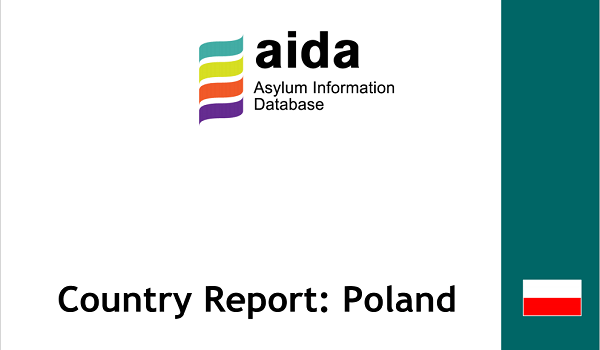The updated AIDA Country Report on Poland provides a detailed overview on legislative and practice-related developments in asylum procedures, reception conditions, detention of asylum seekers and content of international protection in 2020.
The year 2020 continued to be marked by grave systemic irregularities and illegal practices at borders, hindering the access to the asylum procedure. On 23 July 2020, the European Court of Human Rights (ECtHR) concluded in M.K. and Others v Poland that the Polish authorities had failed to review the applicants’ requests for international protection and were responsible for collective expulsions, thereby exposing them to a serious risk of chain-refoulement, in violation of the European Convention on Human Rights (ECHR). Despite the ECtHR judgment, as well as other pending cases at national and European level, the Polish government still denies the existence of unlawful practices at the border. The COVID-19 pandemic and limitations on cross border movement added further obstacles to accessing international protection in Poland.
Only 2,803 applications for international protection were lodged in 2020, representing a -31% decrease compared to 2019 (4,095 applications). This is the lowest number of applications since 1999. It is also due to the suspension of activities of the Office for Foreigners (OFF) from 16 March to 25 May 2020 in the context of COVID-19. The recognition rate at first instance remained very low at only 16% and the chances of success of appeals at second instance are poor as the large majority of appeals are being rejected (1,737 out of 1,943 in 2020). Access to legal assistance also remains very limited due to a lack of funding to NGOs.
COVID-19 further hampered the access to material reception conditions. The lack of access to material reception conditions is particularly worrying for people who are waiting to officially lodge their application for international protection as they are not legally entitled to any benefits during that waiting period. The year 2020 was also marked by a large increase of people living outside of reception centres. The financial allowance that they receive remains insufficient to meet basic needs. The lack of financial support is an issue that has persisted throughout the years and was flagged by an NGO to the European Commission in 2020 as non-compliant with the Reception Conditions Directive.
As regards detention, the occupancy rate remained low due to COVID-19 resulting in the reduction of detention capacity in certain detention centres. Nevertheless, alternatives to detention are rarely applied and Courts do not conduct an individualised assessment of the proportionality of detention in practice, including when it involves children – which raises concerns as regards the best interest of the child. Foreigners are also not informed about their right to legal assistance and have limited possibilities to appeal against detention orders.
Recent studies flagged housing as one of the main issues both for asylum seekers and beneficiaries of international protection in Poland. Inadequate quality of housing results in slowing down their integration process and may have a negative impact on their physical and mental health. Another important gap is the lack of specialised medical services for victims of torture or traumatised refugees.
Photo: ECRE
This article appeared in the ECRE Weekly Bulletin. You can subscribe to the Weekly Bulletin here.

